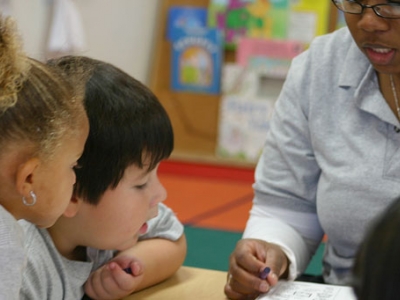
Questions to ask your kids when they read the Bible
We need to encourage our children to explore scripture, using their imagination and adult guidance.
What is it that we do as we read these words and seek to live in response to them? What are the actual steps involved in crossing the bridge from the world of the Scriptures into the world we live in today? And how can we help teach our children and young people to do these things that we often do intuitively or even unconsciously?
Here’s what I’ve come up with so far.
Understand Content
Bible exploration has to at some level understand the content of what God’s word is communicating to us. The Bible is not merely a collection of facts, revelation is not just propositional, but it is not not propositional. As with a personal relationship with another human being, our relationship with God is shaped by particular objective truths about God, ourselves and our world.
We want to help children and young people think about what God is saying in this passage about himself – his character, his actions, his words. In particular we want to look out for God’s word of promise and instruction – sometimes the promise will be explicit in the text, with an implied instruction, other times the instruction will be plain and the promise implied; either way we’re looking for these two fundamental aspects of the covenant relationship: promise and command, law and gospel.
Not only is the content of the Bible about God, we’re also given information about the environment in which we live out our response to God. So we want to look out for what the passage might tell us about the nature of the world we live in. We want to look for what we’re told about human beings both in terms of God’s intention for us and about the reality of human sin. And we’ll also want to look for information about God’s people as those who have been graciously called to belong to him: what are our unique characteristics, privileges, responsibilities.
The content of individual passages will also contribute somehow to the overall message and story of the Bible. So along with looking for the details of the one passage we’re reading, we also want to look out for how this passage contributes to the big picture. Most importantly when reading the Old Testament, we want to look out for how this passage points toward Jesus and what difference does Jesus make to how we understand what God is saying in the passage.
That leaves me with seven questions to think through as we explore a passage from the Bible:
- What is God like/has God done/has God said?
- What promises and instructions are given?
- What are human beings like?
- What is our world like?
- What are the people of God like?
- How does this point us to Jesus?
- What difference does Jesus make to how we understand what God is saying in this passage?
Engage Imaginatively
But just knowing the content of a passage is not sufficient for a transformational engagement with God. The Pharisees were world champions at Bible study but they didn’t find life because their study did not move them to engage with Jesus (John 5:39-40).
Having wrestled with what we’re actually asking children and young people to do with the content knowledge the Bible presents, I have come to think that imagination is key. We need to encourage children and young people to engage imaginatively with what the Bible says.
It’s easiest to engage imaginatively with the narratives of Scripture. We can ask questions like:
- Which character in the story do you most identify with and why?
- How would you respond if you were one of the characters in this story? What would you do, how would you feel, what would you be thinking etc.
- Think of a situation you are in now, how would one of the faithful characters in this story act in that situation?
- What would it be like for you to act like the faithful characters in the story in your own life?
The same imaginative engagement is possible for the more direct teaching passages as well:
- What situation in the life of the first hearers of this passage do you think might have led to God giving them this teaching?
- How would you respond if you were one of the original hearers of this teaching? What would you do, how would you feel, what would you be thinking etc.?
- Think of a situation you are in now, how would you respond if you believed (or didn’t believe) this teaching?
I’ve particularly found great value in the imaginative use of the Psalms, with questions like:
- What do you think would have prompted someone to write this poem? What was happening to them, how were they feeling, what were they doing?
- Think of a similar situation that you are in. What would you like to say to God or about God in that situation?
- How do you think the person who wrote this poem was feeling, doing, thinking after they wrote this?
Respond Concretely
Engaging imaginatively with God’s story is still not sufficient unless what we imagine becomes a reality. Imagination opens new possibilities for us; repentance and faith enacts those possibilities through a responsible exercise of our capacity for choice. Having learnt from the content of the passage and engaged imaginatively with the passage, we ought to lead our children and young people to consider their response to God:
- What beliefs do you need to change in light of this word from God?
- What truths do you need to hold on to?
- What lies do you need to let go of?
- What actions are appropriate in light of this word from God?
- Consider your thoughts, words, deeds, emotions, dreams
- What should you start doing, continue doing, or stop doing?
This set of questions is trying to capture the full dimensions of what it means to engage with the Scriptures as the Covenant Documents of the Living God. They’re not a list of questions I work through mechanically, but the sort of questions I have in the back of my mind as I accompany my own children in the grand exploration of God’s word.
For more articles from Growing Faith, subscribe to our monthly e-newsletter.
To hear about the latest books and resources from Youthworks Media, subscribe here.








